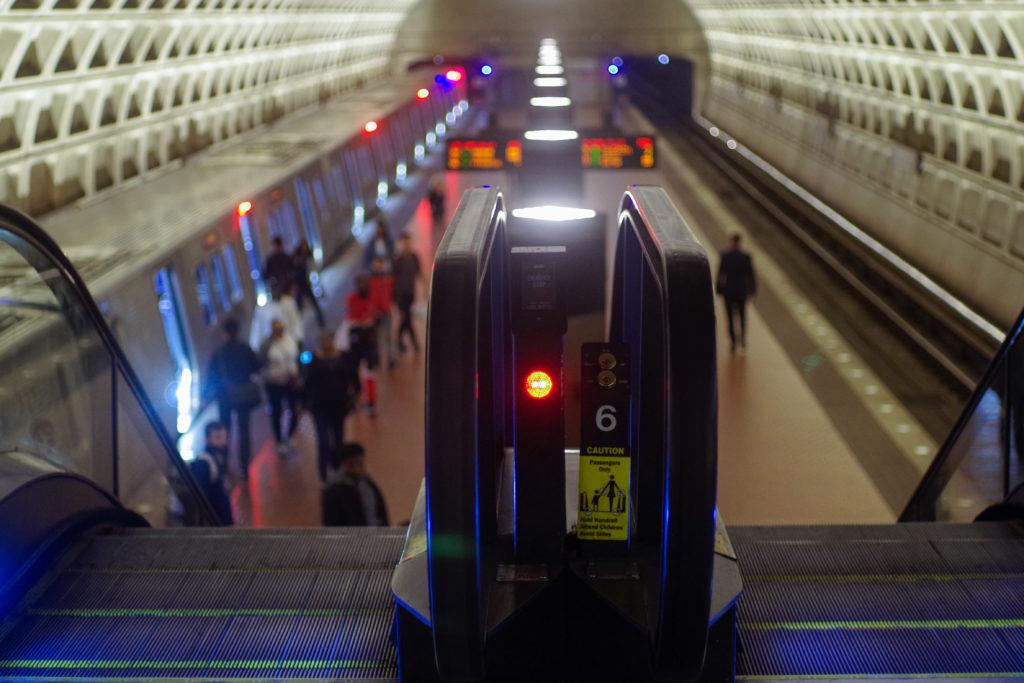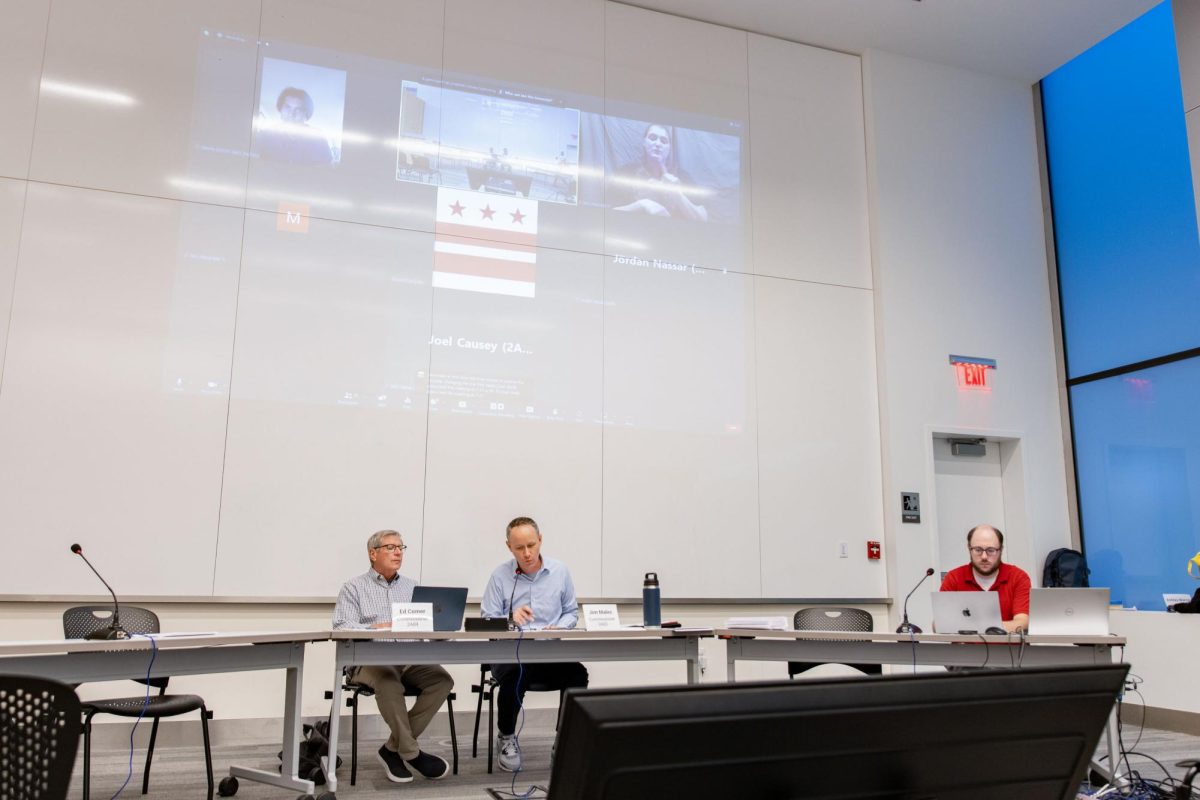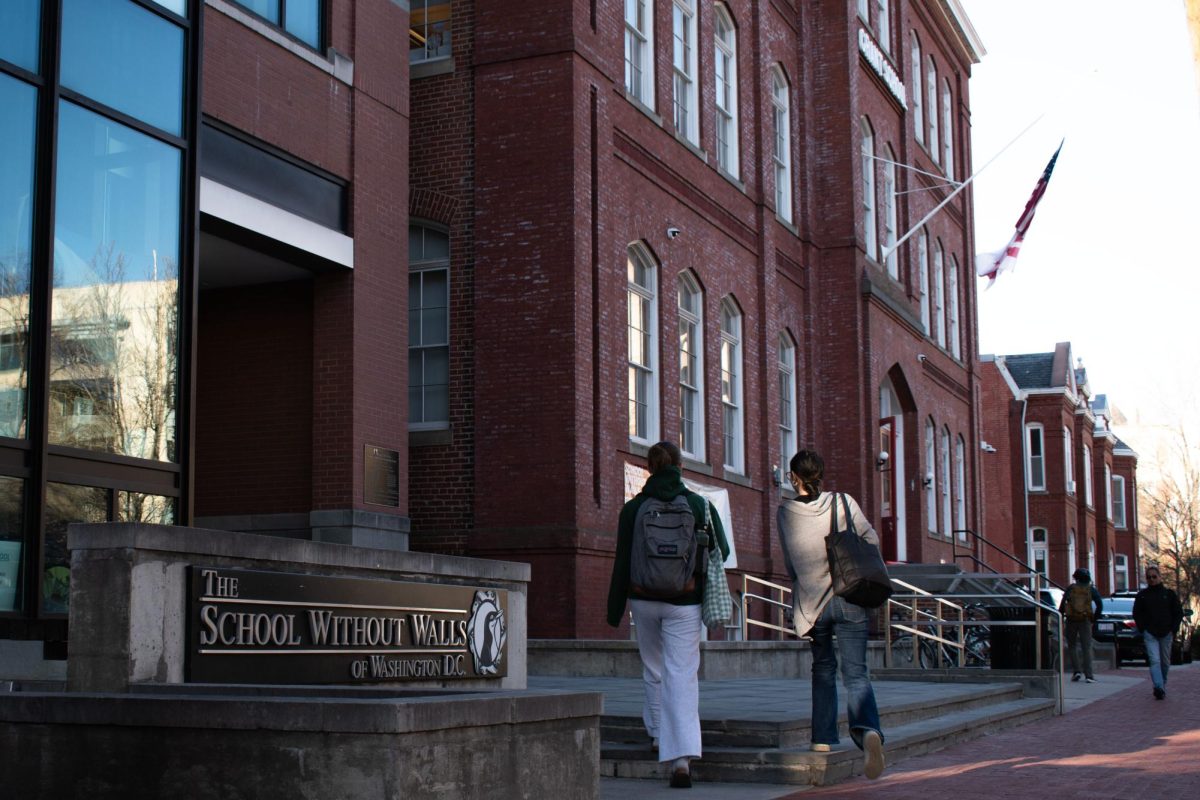Metro riders will soon be able to ride weekend trains for $2 as part of fare and service incentives to bring passengers back after ridership numbers dropped off compared to pre-pandemic levels.
The Washington Metropolitan Area Transit Authority announced in a release last week that riders will receive access to a $2 flat fare for weekend Metrorail trips, free transfers between trains and buses and increased service among other incentives for ridership starting Sept. 5. Paul Smedberg, the chair of Metro’s board, said the changes were needed to provide consistent service to returning workers and visitors as the Metro continues to recover from months of closures and revenue fallout.
“This is a time of change for Metro and our customers, and it’s an opportunity to make our service work better for all riders whether they take Metro to work, the grocery store, visit family or friends or just get around town,” Smedberg said in the release. “We are adding more rail and bus service, more hours and working with businesses and the community to ensure the service will be there when riders need it.”
The agency’s new incentives will include a 20 percent discount for seven-day regional bus passes, shorter waiting times for buses and trains and expanded train service – 1 a.m. closures Fridays and Saturdays and 7 a.m. openings each Sunday, according to the release. The release states that WMATA officials will also increase the number of buses and trains and shorten the Metrorail’s waiting times as part of their service expansions.
Waiting times between trains will take no more than three to six minutes on weekdays on the Red Line and at stations with multiple lines until 9:30 p.m. The number of trains will then increase during weeknights after 9:30, as trains arrive with 10-minute gaps on the Red Line and with five- to eight-minute gaps at stations with multiple lines.
WMATA’s weekend schedule will be the same as weeknights with added trains and shorter wait times.
Metro’s Board of Directors first approved the fare reductions and service expansions in June with the goal of implementing them by Labor Day. WMATA has also taken other measures to address the pandemic, like requiring all employees get fully vaccinated.
Jeri Epstein, the chair of the Foggy Bottom and West End Advisory Neighborhood Commission, said she supports the incentives to bring back riders because she wants to see downtown D.C. revitalized after more than a year of local pandemic-related closures. She said while she has not ridden the Metro since the beginning of the pandemic due to COVID-19 concerns, she thinks the changes will serve her constituents who are willing to ride.
“The more people who use it, the more people come downtown, the more we come back as a city,” she said in an interview. “That’s what we’re looking for, is to bring back the city.”
Epstein said low ridership and an insufficient budget have made it difficult for public transportation to continue running efficiently, and she hopes riders return to the Metro and buy fares to support the agency. WMATA averted a series of devastating cuts and maintained service levels when officials passed its fiscal budget plan earlier this year after receiving about $720 million in federal stimulus through the American Rescue Plan.
“If you see the trains go by now, they are mostly empty,” Esptein said. “So they’re hitting a budget crunch, because people are afraid to get back on mass transit.”
Students said they welcome the service expansions, which they said would likely make their commutes to work easier and cheaper across the city.
Senior Jocelyn Marquez, who has stayed in D.C. since May, said she thinks more people may ride the Metro because of the lower fares. She said she hopes ongoing system maintenance due to platform reconstruction in Maryland will wrap up soon so she can easily access businesses that are reopening across the city.
“It really messed up people being able to commute better,” Marquez said. “Although, because of the pandemic, people didn’t need to commute as much.”
Senior Sydney Kleingartner said she appreciates the lower fares, noting how she started regularly using the Metro during the pandemic to commute to work. She said adding rail cars will help reduce crowding after large events like Nationals games, which she said wasn’t necessarily comfortable during a pandemic.
“I think more trains would be great,” she said. “I think – especially this summer after baseball games and stuff like that – it was really so busy, and I don’t know if I’m exactly comfortable doing that.”







